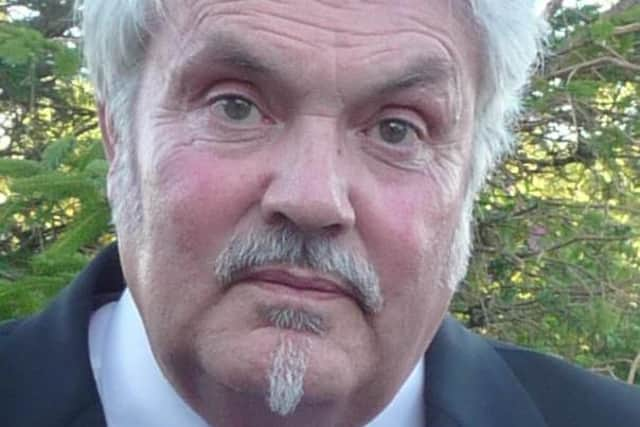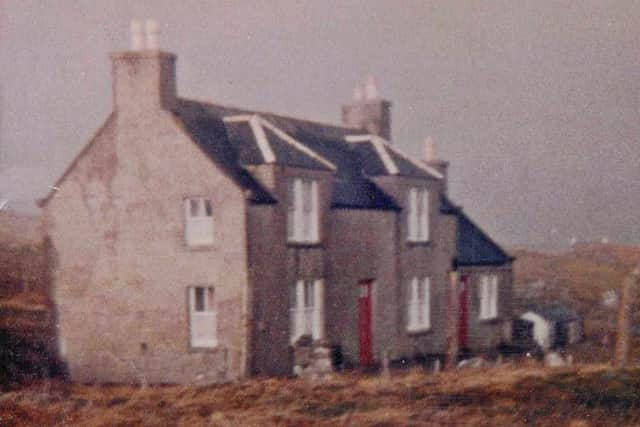Donald Ian MacLeod, a much-loved individual who achieved more than most during his lifetime.


His social media profile had him listed as a broadcaster and psychologist – he spent much of his life performing both of these roles but he was involved in much within these disciplines and a lot more besides, that was hidden from public view.
He was born in Glasgow, son of a sailor from Leurbost, Isle of Lewis and a mother from Kirkibost, Great Bernera. At the age of three the family moved to his maternal grandparents home in Kirkibost, to take care of the large croft and livestock there following the death of his grandad.
Advertisement
Hide AdAdvertisement
Hide AdThe following few years of childhood in Bernera would be of great significance to Donald. His experiences then would, in later life, inspire him to write stories based on his childhood – these were titled “Eadar Da Shaoghal” (Between Two Worlds) – and were broadcast, in recent years, in a series on BBC Radio nan Gaidheal – and then published in 2019. He often spoke of his sense of belonging that islanders have always had.


The family then moved to his paternal grandparents home in Leurbost, Lochs, Isle of Lewis in 1956, although there was frequent commuting to Kirkibost, in maintaining the croft there. Following a near fatal accident, falling of his bicycle and some complications with schooling, Donald ended up going to the Lews Castle College to study textiles which didn’t really interest him – other than it provided a passport to leave home and attend the College of Textiles in Galashiels.
In his early teens Donald acquired a guitar that he taught himself to play and, from around 14 years of age, began to play in dance bands around the Isle of Lewis. Moving to Galashiels in the mid 1960s he soon left the textiles college to pursue his main interest of putting together a band. He did, and they proved to be very successful in performing around Scotland and England – mainly supporting famous, and soon to be famous, acts like the Jeff Beck Group, the Moody Blues, Cat Stevens, Long John Baldry and Robert Plant (later of Led Zeppelin) & his Band of Joy. He was also later involved in playing with a band on the Scottish folk scene and mixed with the likes of Billy Connolly & Gerry Rafferty, Aly Bain and many more.
He married around this time and started his family. Donald’s music career faded after that for various reasons and he spent a couple of years not doing very much. It was then that he acquired the necessary qualifications to embark on an academic life – he firstly went to Stirling University where he got an Honours degree in Psychology. He then headed off to Liverpool University for a post-grad where he obtained a Diploma in Applied Social Sciences.
Advertisement
Hide AdAdvertisement
Hide AdHe then found work as a psychologist in north-west England and initially worked as such in prisons where he developed his skills in understanding the minds of such people. He was also involved in a working group that made recommendations on how members of the bereaved families of people lost in major tragedies should be treated – in particular he was involved with people following the Hillsborough football tragedy of 1987.
In the early 1990s Donald got involved in media work relating to his skills as a psychologist. He appeared live for a period on the “This Morning” programme on ITV when a help-line was set up for the families Gulf War soldiers to phone in for advice on the psychological issues they were suffering from.
Shortly after this Donald decided to take time out from working as a psychologist to move with his family to the Aberdeen area to take part in a media course, with particular emphasis on the Gaelic language. It was a government-sponsored scheme jointly run by Grampian TV and the Gaelic college Sabhal Mhor Ostaig. It was during this time that Donald first produced programmes for TV – such as ‘An e Farmad an ni Treabahd?’ in 1994 – about the whole issue of community land buy-out which was in its infancy then.
He also produced a short documentary titled ‘The Count’ – about Count Robin de la Lanne Mirrlees – landowner of the Bernera Estate who had also bought and lived in the family home in Kirkibost, Great Bernera. From here Donald became heavily involved in broadcasting on many levels – on TV and radio and in both his languages of Gaelic and English.
Advertisement
Hide AdAdvertisement
Hide AdIn the late 1990s Donald and his family moved to Kent where he would spend the remainder of his life.
He resumed his career as a psychologist – working on mental health issues. At the same time his media work became multi-faceted. Most notably he became increasingly involved in Gaelic TV and radio programmes on BBC Alba and Radio nan Gaidheal. Among these were series about the the Scottish Enlightenment and the author Charles Dickens. He also was the subject of a documentary about himself. During much of the last twenty years he had been a regular radio contributor, particularly on psychology issues.
His broadcast career was aptly bookended by the writing of ‘Eadar Da Shaoghal’ (Between Two Worlds) inspired by his childhood in Great Bernera.
So ended the life of my brother Donald Ian MacLeod – a remarkable man who achieved much in life. He will be deeply mourned and sadly missed by his family and many others.